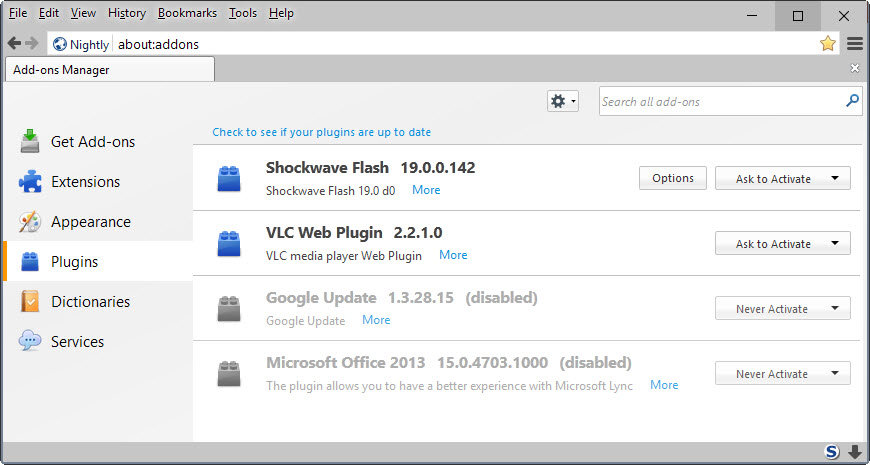Firefox To Finally Ditch Ancient NPAPI Plug-ins – Except Flash
“Mozilla has been steadily improving the Web platform to support features that were once only available via NPAPI plugins”, it said in a blog.
Google Chrome and Microsoft Edge have already dropped support for NPAPI plugins, so Mozilla is playing a bit of catch-up here. There’s one plugin that traditionally used NPAPI that’s special: Flash.
Mozilla has just announced its plans to drop support for NPAPI plugins from its browser’s core, all by the end of 2016.
Adobe Flash is the exception to the rule, because it “is still a common part of the Web experience for most users”. Unless Firefox has a turn in fortune, Computerworld forecasts that it will slip under the 10% mark by April 2016, by which time Chrome will have captured 35% of the browser market.
NPAPI allowed browsers to run complex plugins which leveraged audio, video, and underlying OS functions in an era when Web technology was in its infancy.
Mozilla says it’s also working with Unity to find ways to get content curated by the company into a plugin-free world.
Plugins such as Silverlight, Java, Unity and others will stop being supported in Firefox at the end of 2016. If you’re an interested developer, Unity has shared an updated roadmap for its Web Player technology.
Mozilla mentioned furthermore that it is working with Oracle to ensure a smooth transition for websites requiring Java. Chrome’s Flash does not use NPAPI, as Google was unhappy with both its performance characteristics and its security implications.
Smedberg acknowledged the trail blazing of Chrome and another browser, Microsoft’s Edge, the default for Windows 10.
Firefox has been one of those browsers that has allowed users to opt for manual plugin activation. Moving forward, new Firefox platforms – such as 64-bit Firefox for Windows – will launch without support for plugins. Depending on your requirements, it might be an idea to investigate custom browser extensions, especially if you need more integrated functionality not offered from standard web technologies.
NPAPI stands for Netscape Plugin Application Programming Interface and was an innovation when it was first introduced in Netscape Navigator 2.0, way back in 1995. As Mozilla noted, other browser makers have also ditched NPAPI plugins. What’s your take on the announcement?








